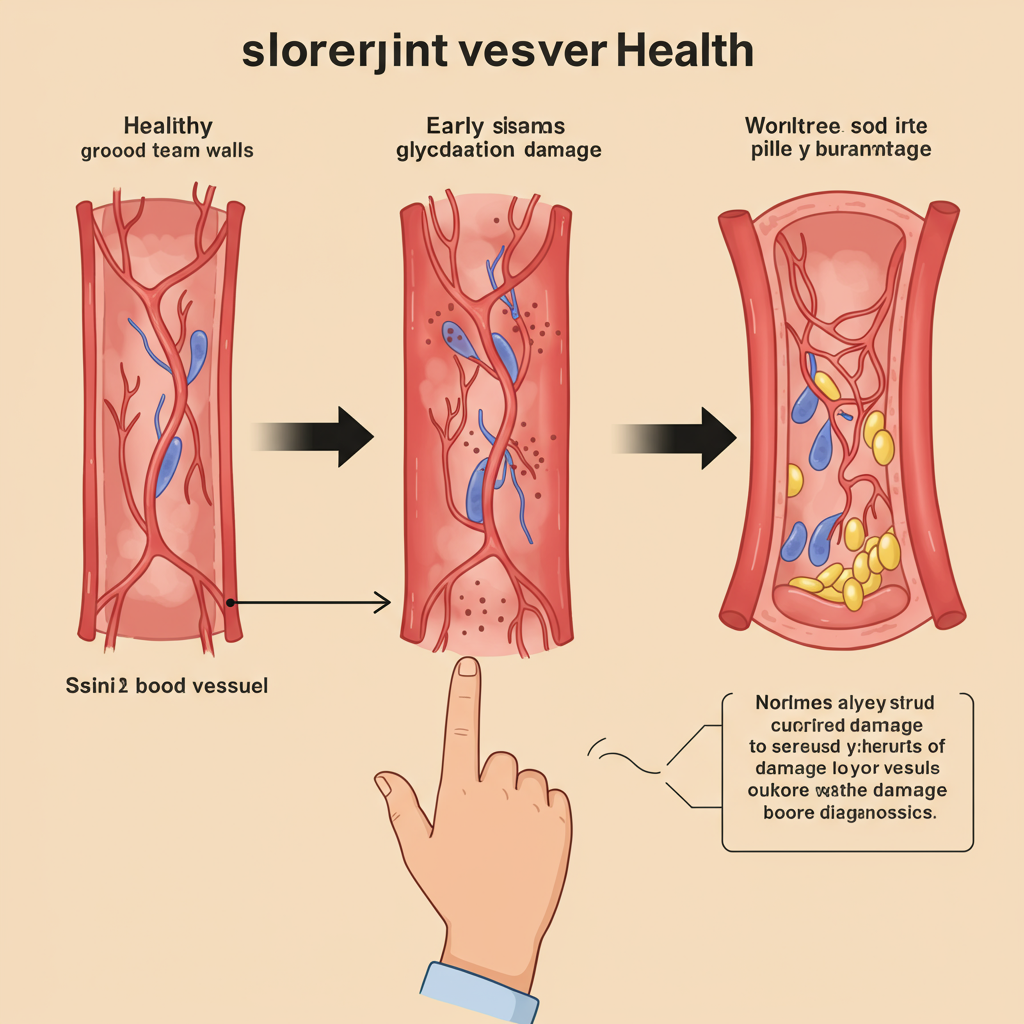Beyond the Sugar: The Critical Connection Between Blood Sugar and Heart Disease
As a functional medicine practitioner, I've seen firsthand how blood sugar imbalances silently damage cardiovascular health long before diabetes is diagnosed. This hidden relationship between what's on your plate and what's happening in your heart vessels deserves our urgent attention. Let's explore why blood sugar matters for everyone concerned about heart health - not just those with diabetes.
The Silent Pathway: How Blood Sugar Damages Your Heart
When your blood sugar rises after consuming processed carbohydrates or sugary foods, it doesn't just affect your energy levels. Each blood sugar spike triggers a cascade of inflammatory processes throughout your body, particularly affecting your blood vessels.
Here's what happens: Excess glucose in your bloodstream attaches to proteins in a process called glycation, creating harmful compounds known as Advanced Glycation End Products (AGEs). These AGEs damage the delicate lining of your blood vessels, creating inflammation and oxidative stress. Over time, this damage contributes to atherosclerosis - the hardening and narrowing of arteries that can lead to heart attacks and strokes.
What's more concerning is that this damage begins years, sometimes decades, before conventional medicine would diagnose prediabetes or diabetes. By the time your fasting blood sugar reaches concerning levels on standard tests, significant cardiovascular damage may already exist. This explains why people with prediabetes have a substantially increased risk of heart disease, and why heart disease remains the number one killer of people with diabetes.

Beyond A1C: The Better Markers of Cardiovascular Risk
The standard medical approach often relies too heavily on fasting glucose and A1C measurements, which tell only part of the story. To truly understand your cardiovascular risk, consider these more comprehensive markers:
Insulin Levels: Elevated insulin can indicate insulin resistance long before blood glucose rises. This hormone doesn't just regulate blood sugar - it affects inflammation, blood pressure, and fat storage around vital organs.
Triglycerides and HDL Ratio: When blood sugar is chronically elevated, it converts to triglycerides (fat) in the liver. A high triglyceride-to-HDL ratio strongly predicts insulin resistance and cardiovascular risk.
Post-meal Glucose Testing: Testing your blood sugar before and after meals provides insight into your body's glucose regulation that fasting tests miss. Blood sugar that rises above 140 mg/dL after meals or takes more than two hours to return to baseline suggests dysfunction that threatens heart health.
Inflammatory Markers: Tests like high-sensitivity C-reactive protein (hs-CRP) can reveal the inflammatory burden contributing to both insulin resistance and cardiovascular disease.
The connection is clear: Even "mild" blood sugar imbalances can significantly increase your risk of heart attacks, strokes, and heart failure - regardless of whether you've been diagnosed with diabetes.
Food as Medicine: Protecting Your Heart One Meal at a Time
The good news? The food choices you make today can begin healing both your blood sugar balance and your cardiovascular system immediately.
Embrace Blood Sugar Balancing Foods:
- Focus on non-starchy vegetables, which should fill 50-75% of your plate
- Choose quality proteins with each meal to stabilize glucose response
- Include healthy fats like olive oil, avocados, and nuts which improve insulin sensitivity
- Add fiber-rich foods that slow glucose absorption and feed beneficial gut bacteria
- Incorporate cinnamon, berberine, and apple cider vinegar, which naturally support glucose metabolism

Timing Matters:
- Consider time-restricted eating (a form of intermittent fasting) which improves insulin sensitivity and heart markers
- Take a short walk after meals to help muscles utilize glucose
- Eating larger meals earlier in the day aligns with your body's natural metabolic rhythm
Beyond Food:
- Prioritize sleep quality, as even one night of poor sleep can impair insulin sensitivity by up to 25%
- Manage stress through meditation, deep breathing, or gentle movement practices
- Build muscle through strength training, which increases your body's glucose storage capacity
These approaches don't just improve numbers on a lab test - they address the root causes of both blood sugar dysregulation and cardiovascular disease, working synergistically to restore health.
Conclusion: A Functional Approach to Heart Protection
The conventional approach of waiting until blood sugar reaches diabetic levels before taking action leaves millions vulnerable to heart disease that could be prevented. By understanding and addressing the blood sugar-heart connection early, you can protect your cardiovascular system long before problems develop.
Remember that heart disease develops gradually, influenced by thousands of meals and lifestyle choices. Each blood-sugar-balancing meal, each walk, each good night's sleep is an investment in your heart's future. Small, consistent changes add up to powerful protection against our nation's leading cause of death.
Your heart and your pancreas are not separate, isolated organs - they're part of an interconnected system. By honoring this connection through mindful choices, you can create resilience that conventional medicine often fails to address until it's too late.

References:
Crane, P. K., Walker, R., Hubbard, R. A., Li, G., Nathan, D. M., Zheng, H., Haneuse, S., Craft, S., Montine, T. J., Kahn, S. E., McCormick, W., McCurry, S. M., Bowen, J. D., & Larson, E. B. (2013). Glucose levels and risk of dementia. The New England Journal of Medicine, 369(6), 540–548.
Ebbeling, C. B., Feldman, H. A., Klein, G. L., Wong, J. M. W., Bielak, L., Steltz, S. K., Luoto, P. K., Wolfe, R. R., Wong, W. W., & Ludwig, D. S. (2018). Effects of a low carbohydrate diet on energy expenditure during weight loss maintenance: randomized trial. BMJ (Clinical research ed.), 363, k4583.






